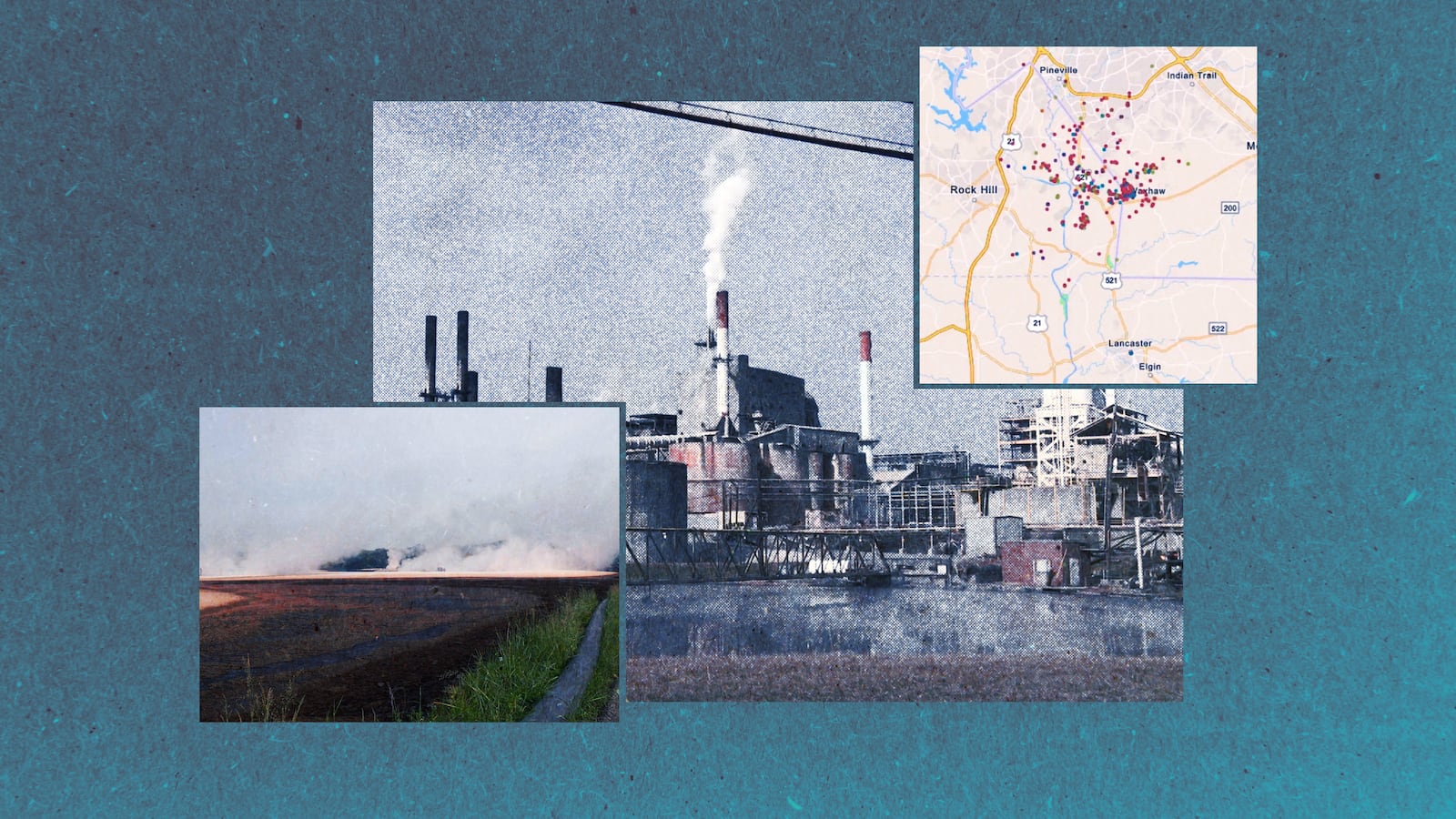For more than two years, their dogs have grown sick, their headaches have persisted, and the same acrid smell has sullied the air. Residents near Catawba, South Carolina, say a paper mill part-owned by billionaire Robert Kraft continues to make them miserable, despite a series of lawsuits, media scrutiny, and government intervention.
“I’m just disgusted with everything,” said Kerri Bishop, who has organized social media pushback against the plant. “I know at least probably 20 people that have moved,” the vast majority of whom were at least partially motivated by the emissions. Bishop tried to move herself, but the sale process fell through.
The Daily Beast first wrote about the Catawba plant in July 2021, at which point locals had submitted more than 20,000 complaints to South Carolina’s Department of Health and Environmental Control.
“We feel like we’re being poisoned and gassed in our homes,” one former resident, Karen Reilly, said at the time. Reilly has since uprooted her family to escape the stench; the vertigo, vomiting, and headaches have disappeared, but her kids miss their old friends.

Karen Reilly and her daughters.
Courtesy Karen ReillySome who remain in the area still worry about their exposure.
“Quite a few people have had pets take a sudden decline in health, to the point that they have had to be put down,” said one resident, speaking on condition of anonymity over concerns about angering New Indy’s business-friendly advocates. “A couple of months ago our dog had a seizure at about the exact same time a neighbor's dog did, on a really stinky [New Indy] day.”
Kraft’s namesake firm co-owns New Indy with Schwarz Partners, a packaging firm based in Indiana. New Indy acquired the Catawba mill for roughly $300 million on Dec. 31, 2018. Soon, it shifted from making bleached paper products to containerboard used to create boxes for e-commerce companies and other buyers.
Residents say the conversion dramatically worsened their quality of life. Last month’s train derailment in Ohio has them further on edge, despite the distance and very different circumstances. In Ohio, “they’re saying the best indicator of exposure is the odor,” Bishop said. “So if we’re smelling something for two years, that’s a problem.”
A spokesperson for the Kraft Group declined to comment.
Federal and state officials have sought to address the concerns. In November, a federal court approved a consent decree filed by the Environmental Protection Agency, saying it resolved allegations that the plant “was causing an imminent and substantial endangerment to public health or welfare or the environment.” The decree included $1.1 million in penalties and forced the company to comply with additional stipulations.
EPA Regional Director Daniel Blackman celebrated the decision in a statement, writing, “Thanks to EPA’s swift action, the facility has not had an exceedance of the health-based standard for [hydrogen sulfide] since September 2021.”
Roughly a week later, the Department of Health and Environmental Control announced its own consent order, which also declared that hydrogen sulfide concentrations had “significantly declined due to improvements being made by New Indy.” Officials warned that residents might never be happy, writing that “[f]acilities like paper mills can emit odors even when operating in full compliance with all applicable standards, laws, and regulations.”
The governmental cheerleading has only further incensed locals who insist the issues have not been resolved. They are also upset that New Indy has until June 2025 to install a new steam stripper to filter out contaminants.
The consent decree “lets them keep doing what they’re doing, and lets the EPA say, ‘Yep, we handled it,’” claimed one aggrieved resident, speaking on condition of anonymity.
Another angry constituent said the authorities have been as “useless as tits on a boar hog.”
The EPA is, in fact, monitoring the situation. In December, it released a report alleging that New Indy may have committed 19 violations dating back several years. The report asserted that the company “may not be in compliance with the Clean Air Act” and state regulations. Additionally, it said, the plant’s activity may have significantly increased emissions of compounds like sulfur dioxide and nitrogen oxides.

Kerri Bishop.
Courtesy Kerri BishopDissatisfied with the government’s response, multiple residents have filed lawsuits hoping the courts will enforce harsher reforms. The most recent, filed just last month, claims that the mill “discharges millions of gallons of inadequately treated wastewater per day to the Catawba River, affecting potentially over one million citizens, residents, and workers in South Carolina and North Carolina.”
The complaint alleges that New Indy has violated federal law and that the plaintiffs have suffered anxiety about possible adverse health effects and have been forced to stop using the Catawba watershed for recreational activities. (Sampling conducted by the state in 2021 found that water quality had not been affected, though some residents remain skeptical. New Indy has also pushed back on some of the allegations. In October, the company denied “the baseless accusations… that dioxin is seeping into the Catawba River from the mill property.”)
In an effort to improve its reputation, New Indy created an entire tab on its website dedicated to “misconceptions and misinformation.” It blames the hydrogen sulfide emissions on the plant’s previous owners, who it asserts “minimally maintained” the wastewater treatment system. The company also stresses that it has taken corrective actions, costing millions of dollars, to reduce emissions and to improve communication with the local community.
Some aren’t sold. “I personally don’t think they took the issue seriously, said Jim Stover, who recently moved away from the area, in part because of the plant. “They did their best to deflect the issue, saying they did everything they could. In reality very little was done to truly address the concerns of those affected by their negligence.”
Scott Stevens, who previously got nosebleeds he attributed to the mill, said the smell has become less frequent. Other towns, he noted, seem to have it worse.
Bishop, who has lived in the area for more than six years, is appealing directly to Robert Kraft for a solution. “Spend some of your billions and let’s get this going,” she said.





